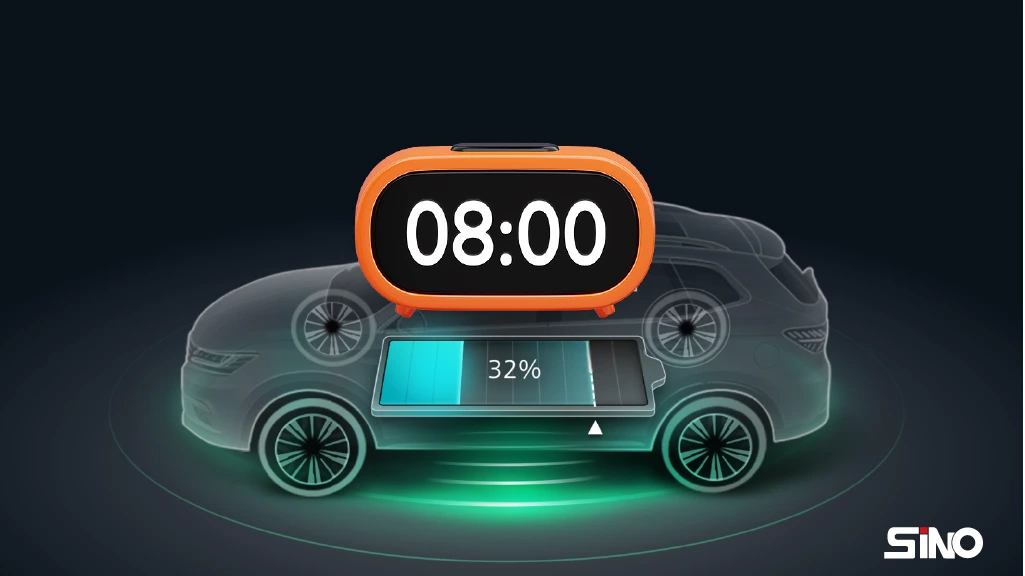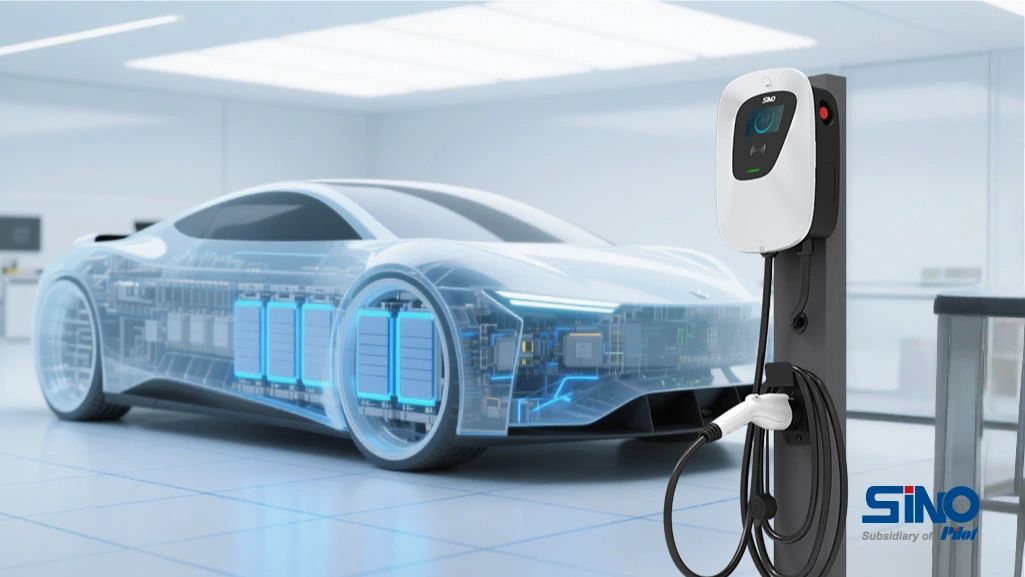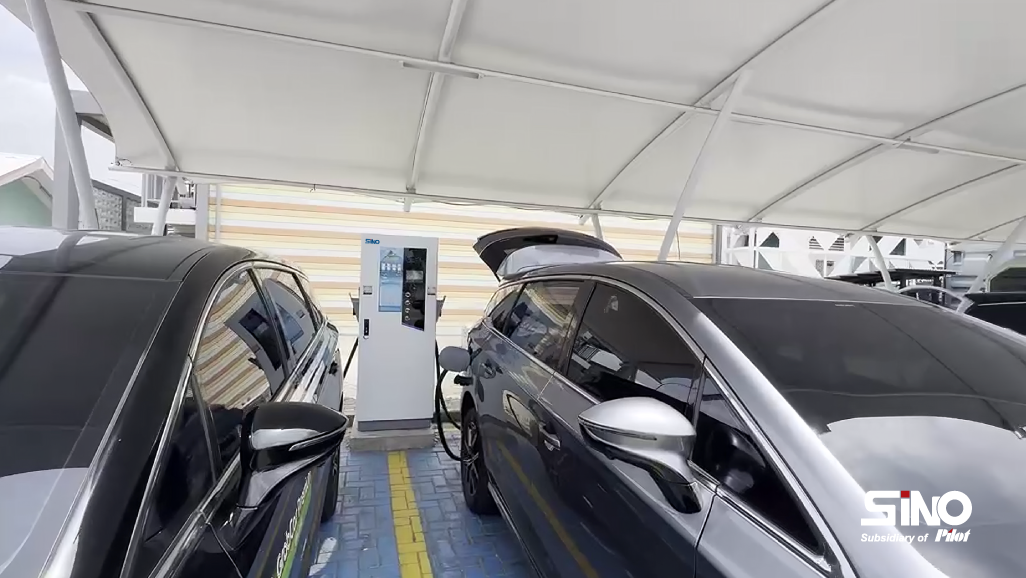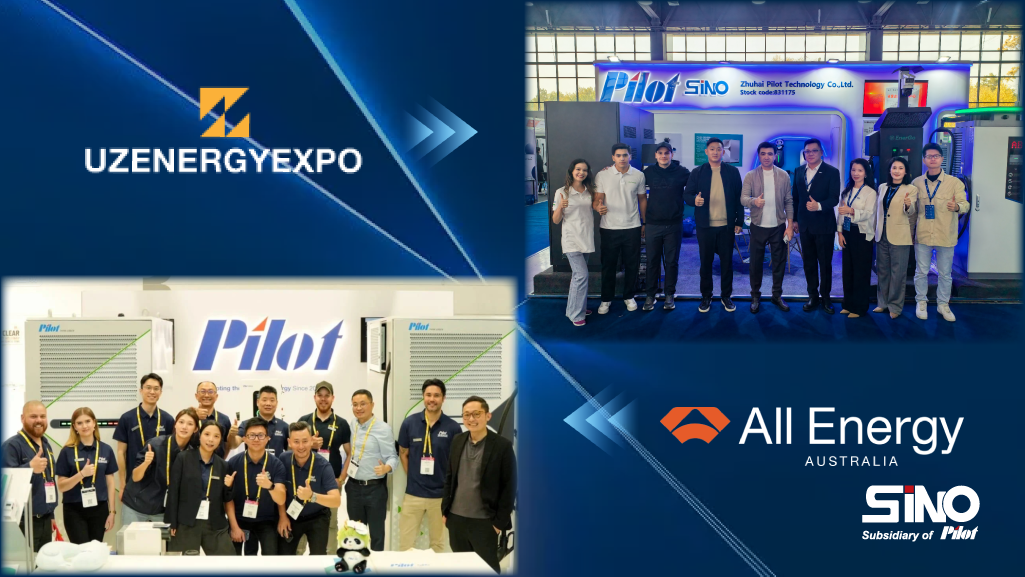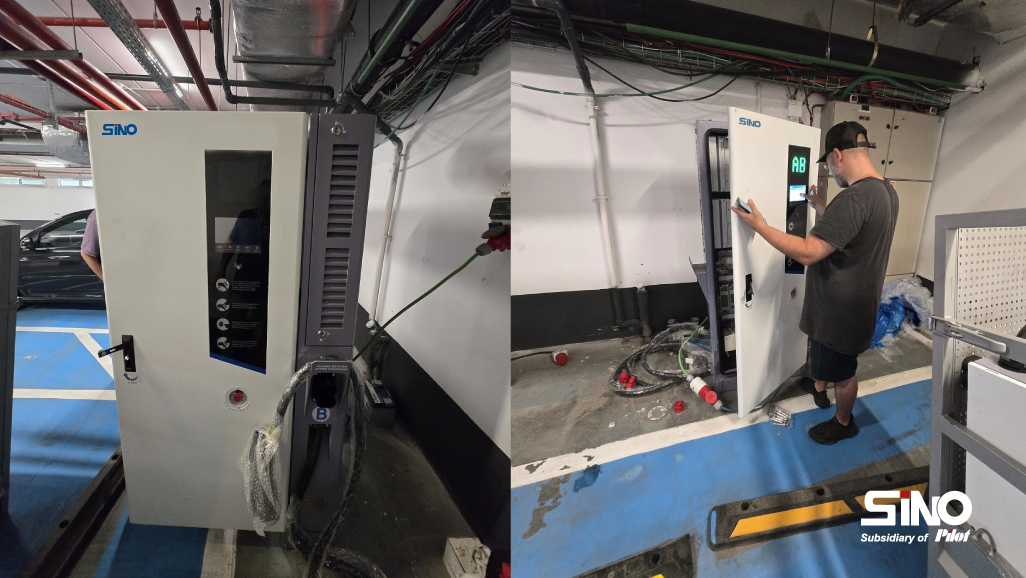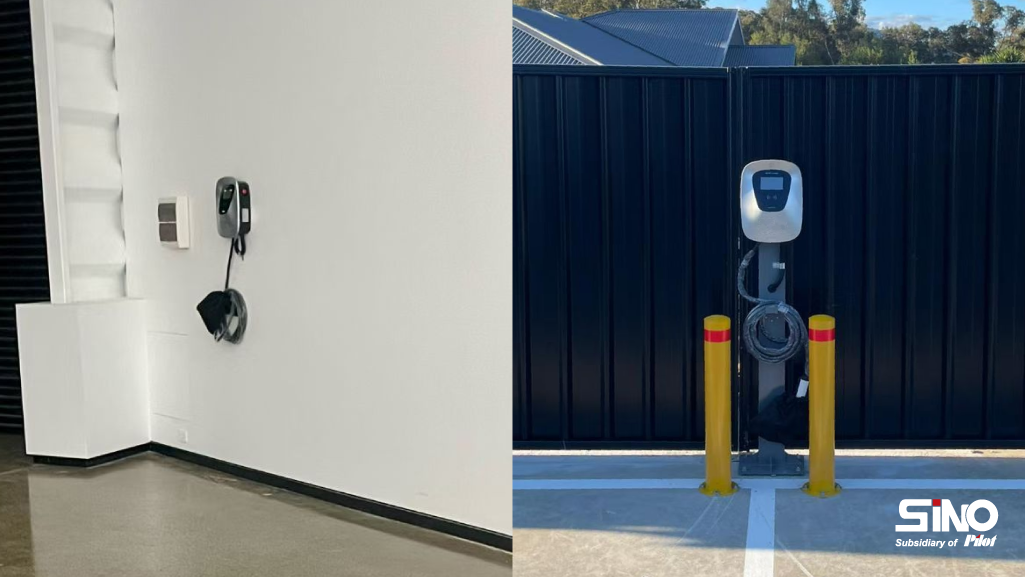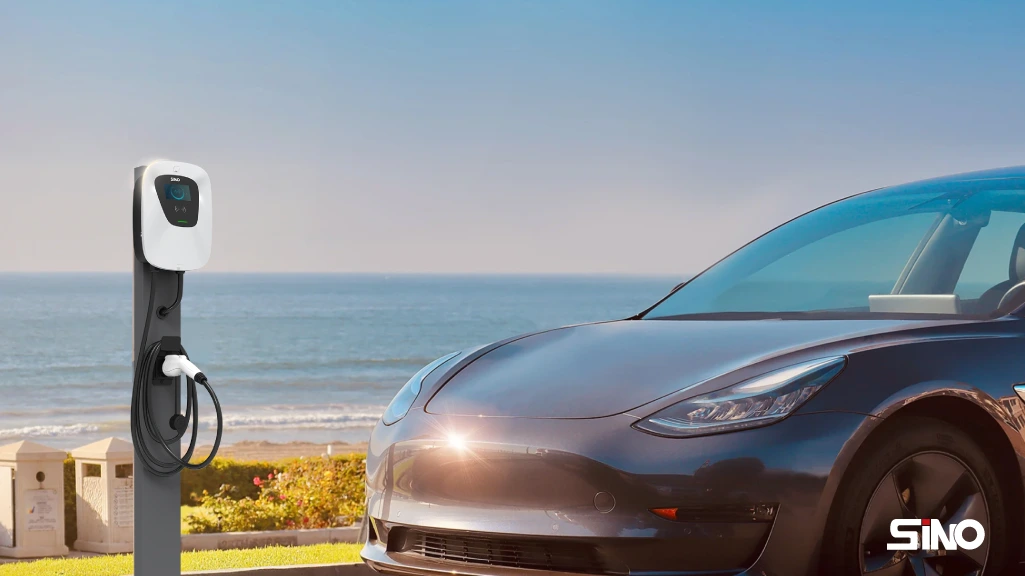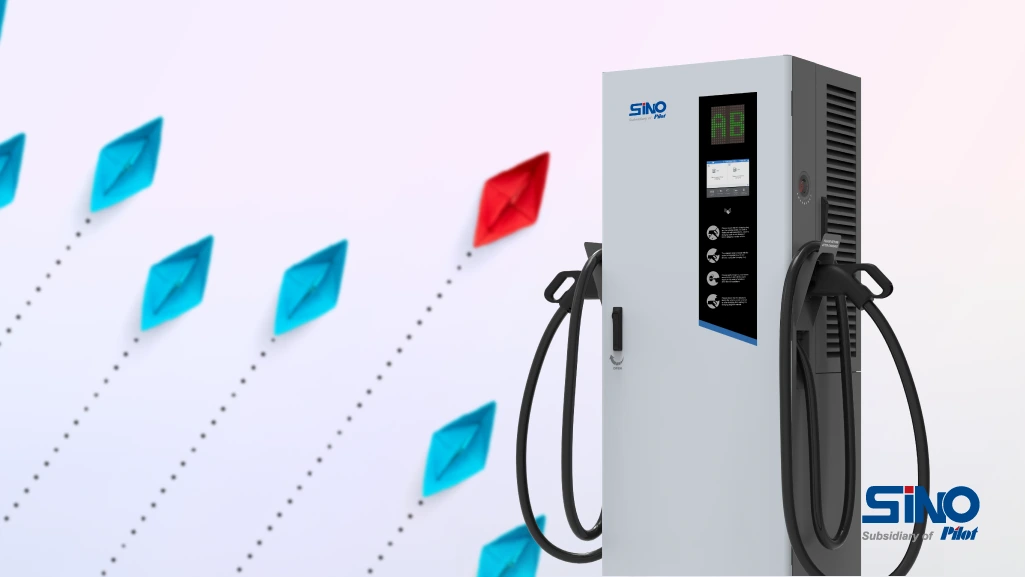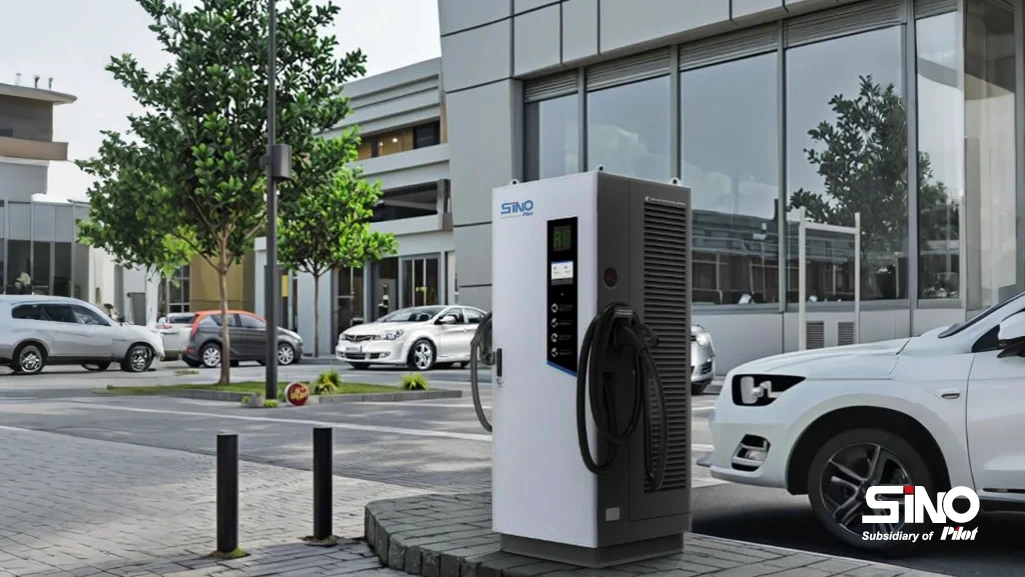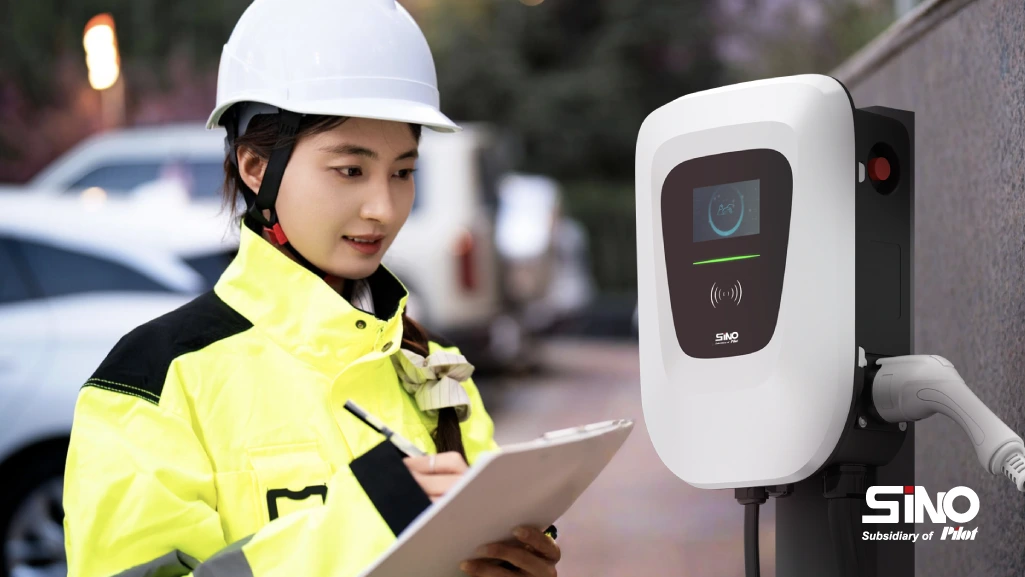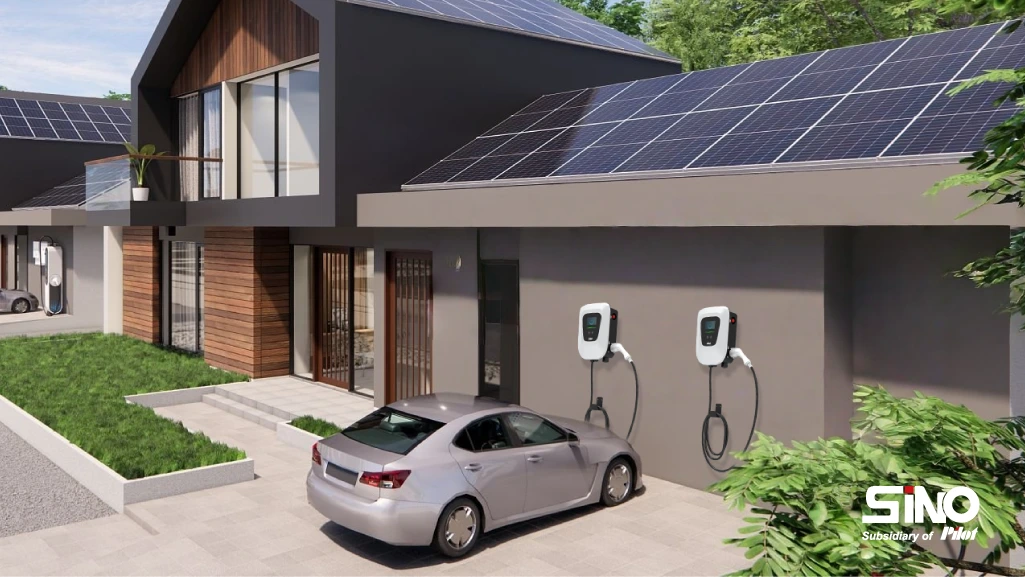When it comes to electric cars, their charging time is essential to be considered as we all want to charge the car with the same efficiency as filling one up with fuel. Mainly charging times highly depend on an electric car’s battery size and on the power of the charging point.
How To Calculate EVs Charging Times
First, find the output power of the charging station by multiplying the amperage and voltage, then divide by 1000 to convert the number to kilowatts to make it more manageable.
For example, our Sino PEVC2201E charger. The voltage is 240 and the amperage is 32.
240 V x 32A = 7,680 W
7680 W / 1000 = 7.68kW = charging station output power
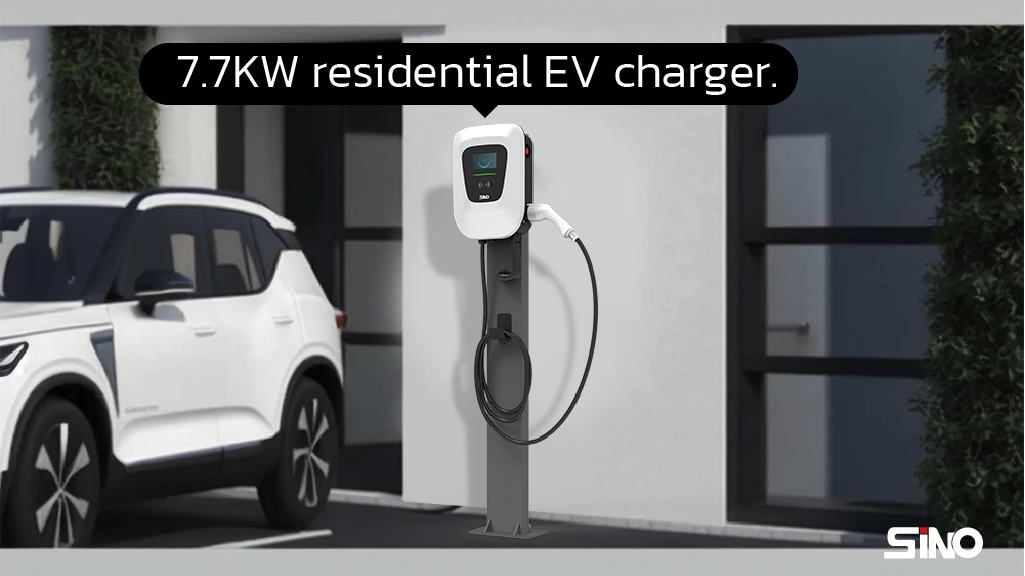
Second, find hours to a full charge by dividing your EV’s battery pack size by the lower limiting factor: the vehicle’s acceptance rate or the charging station’s output power.
Continuing the previous example, you plan to use the PEVC2201E to charge a Tesla Model 3 Long Range. The battery pack has 75 kWh, a total range of 310 miles, and an acceptance rate of 11.5 kW. Because the Tesla Model 3’s acceptance rate is slightly higher than the PEVC2201E output power, we will use that as our limiting factor.
75 kWh / 7.68 kW = 9.76 hours for a full charge
Finally, find the miles of range per hour plugged in by taking the total range of the EV, in this case, 310 miles, and divide by the 9.76 hours to a full charge.
310 total miles / 9.76 total hours = 31.76 miles of range per hour plugged in.
If you use our PEVC3401E charging station with an output power of 30KW, even though it is higher than the acceptance rate of the Tesla Model 3 Long Range is 11.5KW, you still have to use the 75KWh to divide the 11.5KW which equals 6.52 hours for a full charge. The range per hour will be 47.55 miles which is 310 miles/6.52hour.
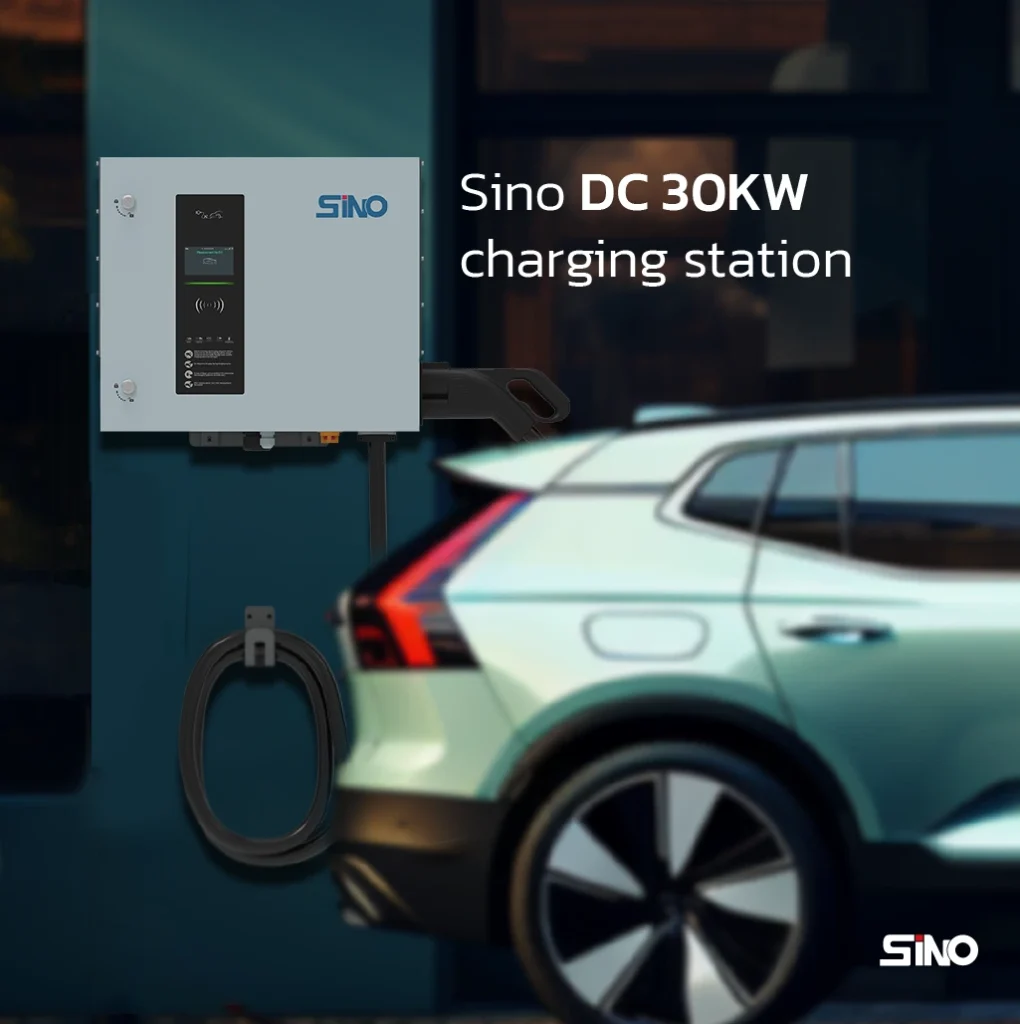
Main Factors That Affect The Electric Vehicle Charging Time
- Socket Output
Different sockets provide different power outputs. A domestic socket may offer less power compared to a dedicated EV charging socket, leading to longer charging times.
- Power Source for Charging
Renewable energy sources, like solar or wind, can influence the charging speed and the environmental impact of your charge.
- Size of battery:
The bigger your vehicle’s battery capacity (measured in kWh), the longer it will take to charge, as larger battery requires more energy to fill up.
- State of battery (empty vs. full):
The time it takes to charge an EV will depend on the current state of charge (SoC) of the battery. If you are charging from empty, it will take longer to charge than if you are topping up from 50%.
- Temperature:
Battery temperature can impact charging time, as colder temperatures can reduce the efficiency of the charging process, so it takes slightly longer to charge, particularly when using a rapid charger. Colder temperatures also mean vehicles are less efficient, so less miles are added per time charging.
- Max charging rate of vehicle:
You can only charge a vehicle’s battery at the maximum charge rate the vehicle can accept. For example; if your vehicle’s max charge rate is 7kW, you won’t charge any faster by using a 22kW charge point.
- Power Supply:
The capacity of the power supply and the amount of electricity available can impact charging time, as a lower capacity power supply may take longer to charge an EV. For example; even if your vehicle can charge at 11kW, it will only charge at 7kW on a 7kW charge station. It will be limited by the max charging rate of the charge point you are using
- Charging Infrastructure:
The availability and accessibility of charging infrastructure can impact charging time, as it may take longer to find a charging station and wait for a free charging spot.
Some Guidelines To Optimize The Charging Process And Extend Battery Health
- Precondition the Battery:
This can optimize charge times. By setting the charger as a navigation destination, some cars automatically adjust the battery temperature to enable faster charging.
- Limit EV Quick Charging:
Charge your battery only when it’s relatively low. If your battery is closer to empty, it’ll charge faster. Maximize distance between fast-charging stops. Additionally, preconditioning before each stop not only saves time but also money at public charging stations.
- Share Your Route in Advance:
By doing so, computer models can predict and reduce charging queues, potentially slashing wait times by up to 97%.
- Plan Charger Stops Ahead of Time:
When traveling, locate fast chargers, especially near places you’ll be visiting. Aim to find a DC fast charger – it can bring your battery to 80% in typically less than an hour.
- Use Slower Charging for Battery Health:
It’s generally considered good etiquette to stop charging once you reach 80% capacity as well as if there are other drivers waiting to use the public charger. Only charge your battery to 80% to prolong its lifespan. If you don’t frequently use your EV or are preparing for a long trip, opt for a timed and slower charger. This method is gentler on the battery when compared to frequent fast charging.
- Avoid extreme temperatures:
Try not to use the charger under extreme hotness or coldness will save you waiting time and protect batteries. There is a combination of physical and environmental factors that can affect charging speed. Keeping the battery in good condition helps keep it efficient. The battery management system is there to help regulate the batteries when charging and discharging to help prolong their life.
Our social:
Facebook: www.facebook.com/sinoevc
Instagram: www.instagram.com/sinoevc
Linkedin: www.linkedin.com/company/sinoevse
Youtube: www.youtube.com/@sinoevc
Twitter: www.twitter.com/sinoevc

“Better Charging for Better Life”
—ZHUHAI SINO ENERGY TECHNOLOGY CO., LTD.



